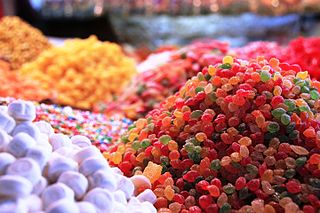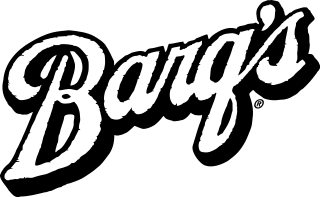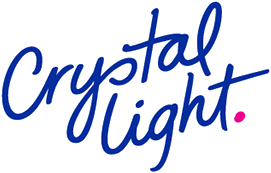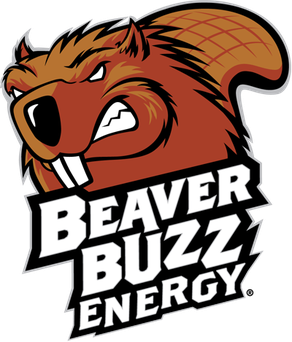
Candy, alternatively called sweets or lollies, is a confection that features sugar as a principal ingredient. The category, also called sugar confectionery, encompasses any sweet confection, including chocolate, chewing gum, and sugar candy. Vegetables, fruit, or nuts which have been glazed and coated with sugar are said to be candied.

Guaraná is a climbing plant in the family Sapindaceae, native to the Amazon basin and especially common in Brazil. Guaraná has large leaves and clusters of flowers, and is best known for the seeds from its fruits, which are about the size of a coffee bean.

Tic Tac is a brand of small, hard mint manufactured by the Italian company Ferrero. They were first produced in 1969 and are now available in a variety of flavors in over 100 countries.

Sports drinks, also known as electrolyte drinks, are functional beverages whose stated purpose is to help athletes replace water, electrolytes, and energy before, during and especially after training or competition. The evidence is lacking pertaining to the efficacy of use of commercial sports drinks for sports and fitness performance.

An energy drink is a type of functional beverage containing stimulant compounds, usually caffeine, which is marketed as providing mental and physical stimulation. They may or may not be carbonated and may also contain sugar, other sweeteners, or herbal extracts, among numerous other possible ingredients.

Barq's is an American brand of root beer created by Edward Barq and bottled since the beginning of the 20th century. It is owned by the Coca-Cola Company. It was known as "Barq's Famous Olde Tyme Root Beer" until 2012. Some of its formulations contain caffeine.

An elixir is a sweet liquid used for medical purposes, to be taken orally and intended to cure one's illness. When used as a pharmaceutical preparation, an elixir contains at least one active ingredient designed to be taken orally.

A caffeinated drink, or caffeinated beverage, is a drink that contains caffeine, a stimulant that is legal practically all over the world. Some are naturally caffeinated while others have caffeine added as an ingredient.

Mentos are a brand of packaged scotch mints or mint-flavored candies sold in many stores and vending machines. First produced in 1932, they are currently sold in more than 130 countries worldwide by the Italian-Dutch corporation Perfetti Van Melle. The mints are small oblate spheroids, with a slightly hard exterior and a soft, chewy interior.

A mint or breath mint is a food item often consumed as an after-meal refreshment or before business and social engagements to improve breath odor. Mints are commonly believed to soothe the stomach given their association with natural byproducts of the plant genus Mentha. Mints sometimes contain derivatives from plants such as peppermint oil or spearmint oil, or wintergreen from the plant genus Gaultheria. However, many of the most popular mints citing these natural sources contain none in their ingredient list or contain only trace amounts.
Butterfinger is a candy bar manufactured by the Ferrara Candy Company, a subsidiary of Ferrero. It consists of a layered crisp peanut butter core covered in a "chocolatey" coating. It was invented by Otto Schnering of the Curtiss Candy Company in 1923. A popularity contest chose the name.

Crystal Light is an American brand of powdered and artificially sweetened beverage mixes produced by Kraft Heinz. It was introduced in 1982 to a test market and released to the public in April 1984. General Foods, a now defunct company, were the original sellers of the product, but now it is sold by Kraft Foods. It is available in a wide variety of flavors, such as lemonade, sweet tea, and fruit punch.

Sugar candy is any candy whose primary ingredient is sugar. The main types of sugar candies are hard candies, fondants, caramels, jellies, and nougats. In British English, this broad category of sugar candies is called sweets, and the name candy or sugar-candy is used only for hard candies that are nearly solid sugar.

Beaver Buzz is an energy drink line produced in Canada Double D Beverage Co. of British Columbia, under the brand of Canadian Beaver Buzz Energy. The beverages include taurine, caffeine, Siberian Ginseng, Guarana seed extract and various vitamins, and uses cane sugar instead of commonly used high fructose corn syrup. Product variations include Citrus, Green tea, Saskatoon berry, Root Beer, Black Currant, Original, Pineapple Mango, and Canadian Punch flavours. Beaver Buzz contains 180 mg caffeine in a standard 473 ml can.
Energy shots are a specialized kind of energy drink that contain a dose of the stimulant caffeine in a small amount of liquid. Whereas most energy drinks are sold in cans or bottles, energy shots are usually sold in 50ml bottles. Energy shots can contain the same total amount of caffeine, vitamins or other functional ingredients as their larger versions, and may be considered concentrated forms of energy drinks. "Micro shot" energy drinks also exist, containing only 1–5 teaspoonfuls of liquid.
The following outline is provided as an overview of and topical guide to chocolate:
A functional beverage is a conventional liquid food marketed to highlight specific product ingredients or supposed health effects.

Kopiko is an Indonesian brand of coffee and confectioneries originally produced in Indonesia by Mayora Indah. It is named after the kōpiko coffee bean, found in Hawaii.
Runa LLC is a privately held organic Amazonian beverage company that processes and sells guayusa. The company is based in Brooklyn, New York, with offices in Quito and Archidona, Ecuador. It was founded in 2008 by two Brown University graduates, Daniel MacCombie and Tyler Gage. The company operates the world's only guayusa processing facility, which is located in Archidona.

A candy bar is a type of candy that is in the shape of a bar. The most common type of candy bar is the chocolate bar, including both bars made of solid chocolate and combination candy bars, which are candy bars that combine chocolate with other ingredients, such as nuts, caramel, nougat, or wafers.














